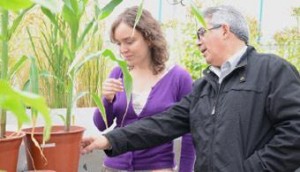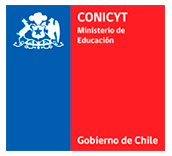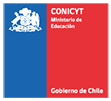News
Scientists develop gene technology to create drought-tolerant plants
Published 09-04-2011
 April, 2011. The UTALCA prepares scientific and technological responses to needs not only deal with solutions to world hunger, but with new conditions from climate change. Source: Gumtree
April, 2011. The UTALCA prepares scientific and technological responses to needs not only deal with solutions to world hunger, but with new conditions from climate change. Source: Gumtree
While nationwide debate on the production and consumption of genetically modified foods, Talca University takes steps to generate genetic constructs that allow produce agriculturally important plants, tolerant to water deficit.
The House of Studies prepares scientific and technological responses to needs not only deal with solutions to world hunger, but with new conditions from climate change.
In that direction, scientists Functional Genomics Group working UTALCA generation technology in genetic engineering, for the development of a biotechnology platform that allows the production of plants, as corn, model in this research culture.
They are responsible for a project of the Fund for Scientific and Technological (FONDEF), Genetic vectors, that began in early 2010 and who is in charge of the group, from the Institute of Plant Biology and Biotechnology of this University, and integrate researchers Simon Ruiz, Enrique Gonzalez and Jose Casaretto.
"Genetic Vectors are DNA fragments that allow carry genes that are able to express themselves in the times when the plant is in drought condition", Simon said Ruiz, project manager.
The research has a five-term. Advances in the initial stage were evaluated by FONDEF, Tuesday 5 April.
According to Ruiz, "The idea is that we can anticipate and take advantage of areas with water shortage or degraded soils, with little ability to maintain crop plants in good condition ".
The scholar that genetic technology can have a positive social and economic impact in distressed communities, "Because it offers the possibility of developing an economic activity that allows them to live with dignity".
"We can begin to overcome geographical barriers with regard to areas that currently can not be used for crops. Climate change requires us to be prepared for different conditions that are used and, to have plant material that is able to be grown under new climate conditions in the country and the world in general ", argued.
The researcher argues that the country can accept or reject the production and marketing of transgenic plants, but you can sell the technology to grow them anywhere in the world. Also, Chile recalled that GM maize is grown for seed destined for export.
Otherwise derived products are also a transgenic plant, as widely used drugs. "The transgenosis goes far beyond food production. For example, who inject insulin diabetics is a product of transgenic, as growth hormone used in hospital laboratories, as Taxol, as used in cancer treatment ", observed
In this sense, Professor Ruiz notes the possibilities are vast. But, like any tool, genetic engineering has its risks, in that it can also be misused.
Edition: Gumtree / RR
Source: University of Talca
More Information:
BIOTECH PLATFORM FOR THE GENERATION OF TOLERANCE …
Name: AURELIO SIMON RUIZ LARA. Address: 2 NORTH 685 INSTITUTE OF PLANT BIOLOGY AND BIOTECHNOLOGY Talca. Phone: 71- 200268 …
www.fondef.cl/bases/fondef/PROYECTO/08/I/D08I1118.HTML



Leave a Reply